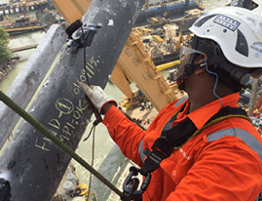Introduction:
In the dynamic landscape of the oil and gas industry, ensuring the integrity and longevity of infrastructure is paramount. Post weld heat treatment (PWHT) services play a crucial role in enhancing the structural integrity of welded components, offering numerous benefits in terms of strength, durability, and resistance to corrosion. In this blog post, we delve into the significance of PWHT services in the oil and gas sector and explore how they contribute to maintaining operational efficiency and safety standards.
Understanding Post Weld Heat Treatment:
Post weld heat treatment is a controlled process that involves heating welded components to a specific temperature range, holding them at that temperature for a predetermined period, and then slowly cooling them down. This process helps relieve residual stresses, improve mechanical properties, and refine the microstructure of the weldment, thereby enhancing its overall performance and reliability.
Importance in the Oil & Gas Industry:
1. Stress Relief: Welding generates residual stresses in the welded components, which can compromise their structural integrity over time, especially in high-pressure and high-temperature environments typical of the oil and gas sector. PWHT helps alleviate these stresses, reducing the risk of premature failure and ensuring the long-term reliability of critical infrastructure.
2. Strength and Toughness Enhancement: PWHT promotes the formation of a more uniform microstructure within the weldment, resulting in improved mechanical properties such as strength, toughness, and ductility. This is particularly crucial for components subjected to extreme operating conditions, such as offshore platforms, pipelines, and pressure vessels, where the integrity of welds is essential for safety and operational efficiency.
3. Corrosion Resistance: The oil and gas industry operates in highly corrosive environments, where exposure to various corrosive agents can accelerate the degradation of metal structures. PWHT can enhance the resistance of welded components to corrosion by promoting the formation of corrosion-resistant phases and eliminating microstructural defects that serve as initiation sites for corrosion.
4. Compliance with Regulatory Standards: Regulatory bodies and industry standards often require specific PWHT procedures for critical weldments used in oil and gas applications. Compliance with these standards is essential not only to ensure the integrity and safety of infrastructure but also to meet contractual obligations and liability requirements.
Conclusion:
Post weld heat treatment services play a vital role in maintaining the structural integrity, reliability, and safety of welded components in the oil and gas industry. By relieving residual stresses, enhancing mechanical properties, and improving corrosion resistance, PWHT helps mitigate the risk of premature failure and ensures the longevity of critical infrastructure. Investing in high-quality PWHT services is not only a prudent business decision but also a fundamental requirement for achieving regulatory compliance and upholding industry standards in the challenging operating environments of the oil and gas sector.
A-Star Testing & Inspection (S) Pte Ltd
No.5 Soon Lee Street, #03-36/37 Pioneer Point, Singapore 627607.
Website: www.astartesting.com.sg
WhatsApp/Call: +65 9183 5901 / +65 6950 8325
Enquiry@astartesting.com.sg

